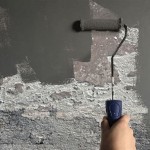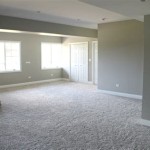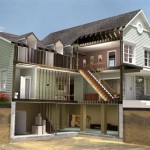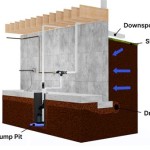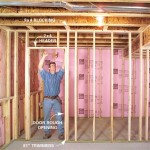Flooring for Basements That Flood: Essential Considerations
Flooding in your basement can be a distressing issue, potentially damaging your belongings and creating a health hazard. Choosing the right flooring material can significantly reduce the impact of flooding and prevent water damage. Here are some essential aspects to consider when selecting flooring for a basement prone to flooding:
Waterproof Materials
The most important aspect is choosing waterproof flooring materials that can withstand standing water and moisture. Consider options like:
- Luxury Vinyl Plank (LVP) or Luxury Vinyl Tile (LVT): These materials are 100% waterproof, durable, and easy to clean.
- Porcelain or Ceramic Tile: These tiles are waterproof and resistant to mold and mildew, making them suitable for wet environments.
- Rubber Flooring: Designed for commercial and industrial use, rubber flooring is waterproof and provides excellent traction even when wet.
Moisture Resistance
While waterproof materials are ideal, some materials offer moisture resistance that can protect against occasional spills or minor flooding:
- Laminate Flooring: With a moisture-resistant layer, laminate flooring can withstand limited moisture exposure but is not suitable for prolonged flooding.
- Engineered Hardwood: Unlike traditional hardwood, engineered hardwood has a multi-layer construction that enhances its moisture resistance.
- Cork Flooring: While not waterproof, cork flooring is naturally moisture-resistant and can handle temporary water exposure.
Elevation and Drainage
Elevate your flooring off the ground to prevent water accumulation. Consider installing a raised subfloor or using leveling jacks to create a gap between the flooring and the concrete slab. Additionally, ensure the basement has proper drainage systems to direct water away from the flooring.
Maintenance and Cleaning
Regular cleaning and maintenance are crucial for extending the life of your basement flooring. Regularly sweep or vacuum to remove debris that could clog drains and create moisture problems. If flooding occurs, promptly clean and dry the flooring to minimize damage.
Additional Considerations
When selecting flooring for a basement that floods, also consider the following:
- Style: Choose flooring that complements the overall design of your basement.
- Durability: Opt for durable materials that can withstand heavy foot traffic and potential flooding.
- Cost: Consider your budget and the cost of materials, installation, and maintenance.
- Professional Installation: Ensure your flooring is installed correctly by a professional to avoid water damage.

The Best Floors For A Flood Prone Basement

Best Flooring For Basements That Flood Try Waterproof Vinyl

Best Waterproof Flooring For Basements That Flood

Best Waterproof Flooring For Basements That Flood

Flooring For Flood Prone Areas Inc

Best Basement Flooring Options For A Flood Prone

Best Waterproof Flooring For Basements That Flood

Best Waterproof Flooring For Basements That Flood

Best Waterproof Flooring For Basements That Flood

Best Waterproof Flooring For Basements That Flood
See Also


